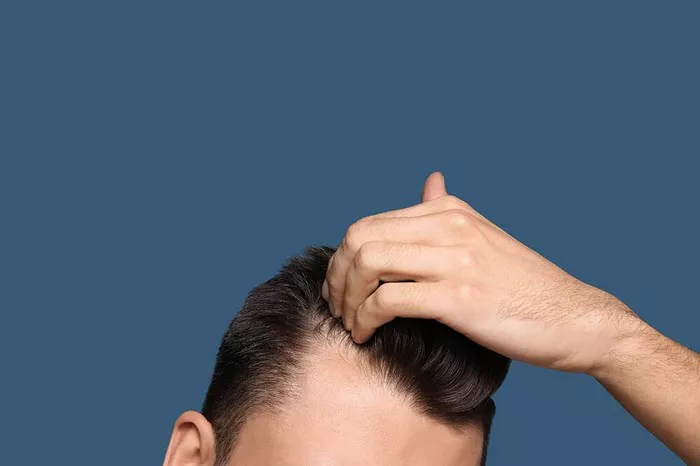Hair loss can be a distressing symptom of Hashimoto’s thyroiditis, an autoimmune condition that affects the thyroid gland. If you’re experiencing hair loss due to Hashimoto’s, you’re not alone. The good news is that there are effective strategies you can implement to mitigate hair loss and promote healthy hair growth. In this comprehensive guide, we will delve into key strategies to help you stop hair loss associated with Hashimoto’s.
Understand the Connection Between Hashimoto’s and Hair Loss
Before we dive into solutions, it’s essential to grasp the connection between Hashimoto’s thyroiditis and hair loss. Hashimoto’s is an autoimmune disease that leads to inflammation of the thyroid gland, disrupting hormone production, including thyroid hormones like T3 and T4. These hormones play a crucial role in regulating hair growth cycles. When imbalances occur, hair follicles can become less responsive, resulting in hair thinning and loss.
Optimize Your Thyroid Medication
Managing Hashimoto’s thyroiditis effectively often begins with optimizing your thyroid medication. Working closely with a healthcare provider who specializes in thyroid disorders is crucial. Here are some steps to consider:
1. Medication Adjustment
Your healthcare provider may need to adjust your thyroid medication to ensure your thyroid hormone levels are within the optimal range. This can help restore proper functioning of your hair follicles.
2. Regular Monitoring
Regular monitoring of thyroid hormone levels is essential. This allows for prompt adjustments to your medication regimen if needed, preventing further hair loss.
Nutritional Support for Hair Health
Nutrition plays a vital role in hair growth and preventing hair loss. In individuals with Hashimoto’s, specific nutrients may be lacking due to malabsorption or other factors. Consider the following:
1. Biotin Supplementation
Biotin, a B-vitamin, is known for its role in promoting healthy hair. Supplementing with biotin may help strengthen hair strands and reduce breakage.
2. Iron and Ferritin Levels
Low iron levels, common in Hashimoto’s patients, can contribute to hair loss. Ensure your healthcare provider checks your iron and ferritin levels and prescribes supplements if necessary.
3. Omega-3 Fatty Acids
Omega-3 fatty acids, found in fish oil supplements, have anti-inflammatory properties and can support overall hair health.
Manage Stress Effectively
Chronic stress can exacerbate Hashimoto’s symptoms, including hair loss. Implementing stress management techniques can make a significant difference:
1. Relaxation Exercises
Practice relaxation techniques such as meditation, deep breathing, or yoga to reduce stress levels and support a healthy scalp environment.
2. Adequate Sleep
Ensure you get enough quality sleep. Sleep is essential for hormone regulation and overall well-being, including hair health.
Gentle Hair Care Practices
Gentle hair care practices are essential for those dealing with Hashimoto’s-related hair loss. Opt for sulfate-free and mild shampoos to prevent stripping natural oils, which can worsen hair thinning. Limit heat styling tools like hairdryers and straighteners, as excessive heat weakens hair and leads to breakage. Handle wet hair delicately using a wide-toothed comb or fingers to avoid unnecessary stress on fragile strands. These practices help maintain the health of your existing hair while preventing further damage. Remember, being gentle with your hair is a crucial component of your strategy to combat Hashimoto’s-induced hair loss.
See Also: How Much Creatine Causes Hair Loss: Unveiling the Connection
In conclusion
Hair loss due to Hashimoto’s can be distressing, but it’s not an insurmountable challenge. By understanding the underlying causes, optimizing your thyroid medication, adopting a nutrient-rich diet, managing stress, practicing gentle hair care, and considering advanced treatments like PRP therapy, you can take significant steps to stop hair loss and promote healthy hair growth. Remember that individual responses may vary, so consult with your healthcare provider to create a personalized plan tailored to your specific needs. With dedication and the right strategies, you can regain confidence in your hair’s health and appearance.


